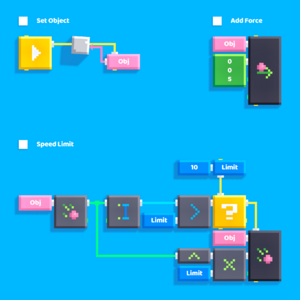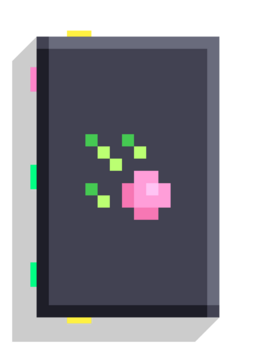Set Velocity: Difference between revisions
-u ndefined- (talk | contribs) m (Use infobox) |
No edit summary Tags: Mobile edit Mobile web edit Advanced mobile edit |
||
| (One intermediate revision by one other user not shown) | |||
| Line 10: | Line 10: | ||
}} | }} | ||
Instantaneously sets a physical object's directional | Instantaneously sets a physical [[object]]'s directional (units/second) and angular velocity (degrees/second). | ||
== Notes == | == Notes == | ||
| Line 25: | Line 19: | ||
== Example == | == Example == | ||
Add a "speed limit" to a physical object: | Add a "speed limit" to a physical object. | ||
By checking whenever the [[distance]] of an object's velocity exceeds a set limit, we can [[normalize]] and [[scale]] to it: | |||
{{Image|Set_Velocity_example.png}} | |||
== Related == | == Related == | ||
Latest revision as of 01:35, 23 August 2025
Set Velocity
| Type | Script block |
| Collider | None |
| Folder | Physics |
| Ports | |
|---|---|
| Inputs | Before Object Velocity Spin |
| Outputs | After |
Instantaneously sets a physical object's directional (units/second) and angular velocity (degrees/second).
Notes
This should be used sparingly. No real object can instantaneously change its velocity, and simulated objects may behave weirdly when forced to do so.
Example
Add a "speed limit" to a physical object. By checking whenever the distance of an object's velocity exceeds a set limit, we can normalize and scale to it:

